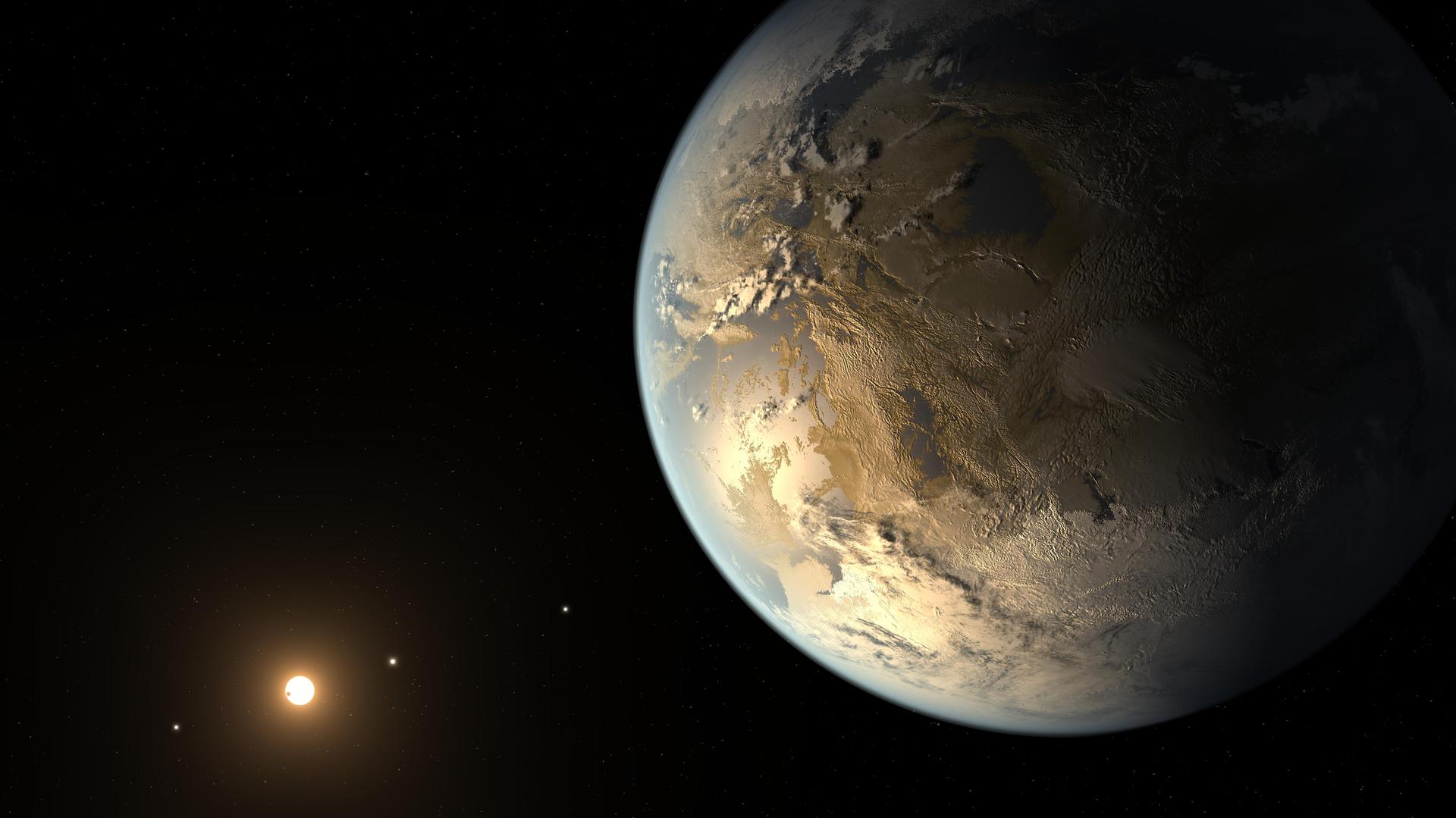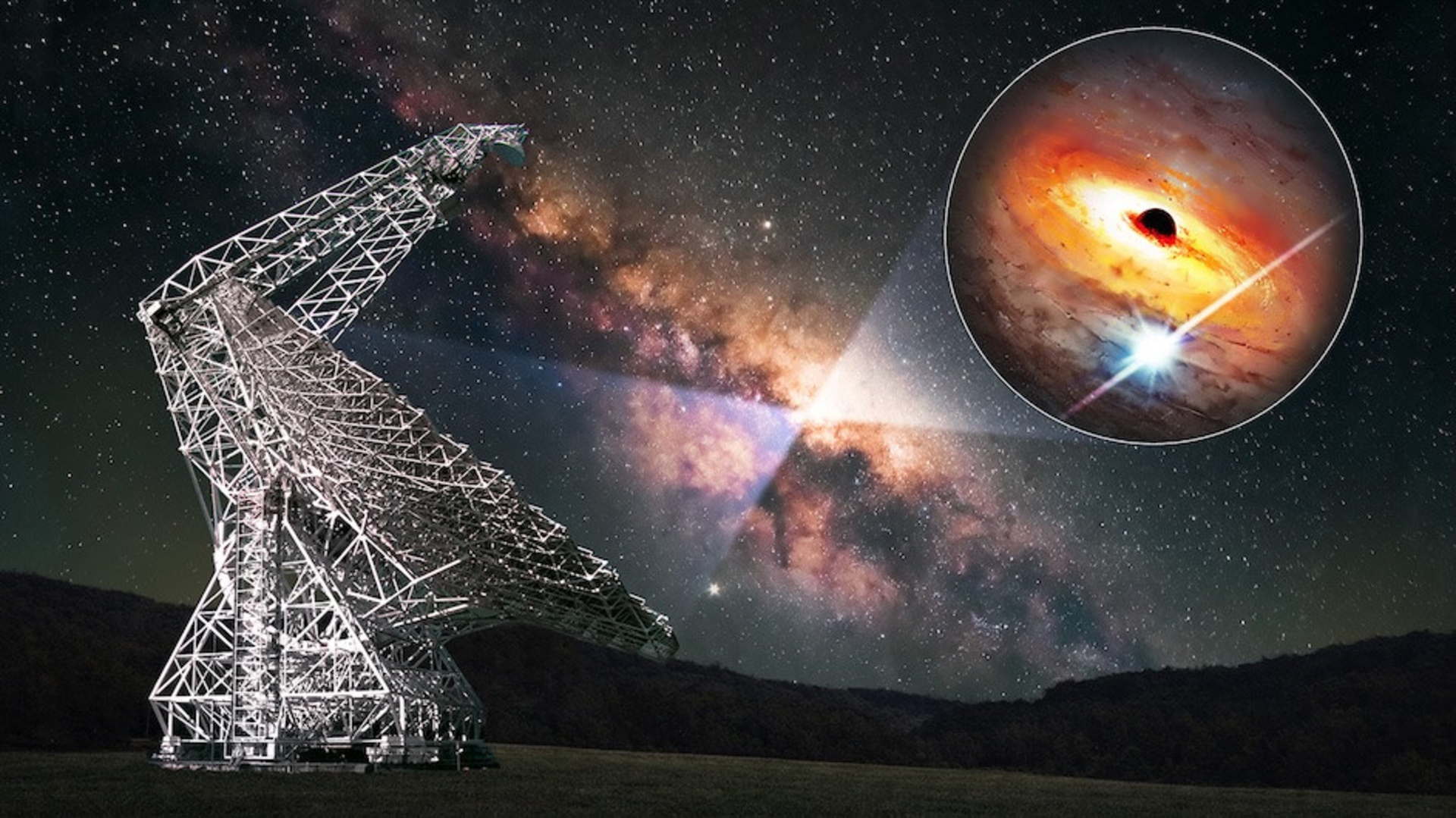Alien civilizations are probably killing themselves from climate change, bleak study suggests
Astrophysicists estimate that any exponentially growing technological civilization has only 1,000 years until its planet will be too hot to support life.

Get the world’s most fascinating discoveries delivered straight to your inbox.
You are now subscribed
Your newsletter sign-up was successful
Want to add more newsletters?

Delivered Daily
Daily Newsletter
Sign up for the latest discoveries, groundbreaking research and fascinating breakthroughs that impact you and the wider world direct to your inbox.

Once a week
Life's Little Mysteries
Feed your curiosity with an exclusive mystery every week, solved with science and delivered direct to your inbox before it's seen anywhere else.

Once a week
How It Works
Sign up to our free science & technology newsletter for your weekly fix of fascinating articles, quick quizzes, amazing images, and more

Delivered daily
Space.com Newsletter
Breaking space news, the latest updates on rocket launches, skywatching events and more!

Once a month
Watch This Space
Sign up to our monthly entertainment newsletter to keep up with all our coverage of the latest sci-fi and space movies, tv shows, games and books.

Once a week
Night Sky This Week
Discover this week's must-see night sky events, moon phases, and stunning astrophotos. Sign up for our skywatching newsletter and explore the universe with us!
Join the club
Get full access to premium articles, exclusive features and a growing list of member rewards.
It may take less than 1,000 years for an advanced alien civilization to destroy its own planet with climate change, even if it relies solely on renewable energy, a new model suggests.
When astrophysicists simulated the rise and fall of alien civilizations, they found that, if a civilization were to experience exponential technological growth and energy consumption, it would have less than 1,000 years before the alien planet got too hot to be habitable. This would be true even if the civilization used renewable energy sources, due to inevitable leakage in the form of heat, as predicted by the laws of thermodynamics. The new research was posted to the preprint database arXiv and is in the process of being peer-reviewed.
While the astrophysicists wanted to understand the implications for life beyond our planet, their study was initially inspired by human energy use, which has grown exponentially since the 1800's. In 2023, humans used about 180,000 terawatt hours (TWh), which is roughly the same amount of energy that hits Earth from the sun at any given moment. Much of this energy is produced by gas and coal, which is heating up the planet at an unsustainable rate. But even if all that energy were created by renewable sources like wind and solar power, humanity would keep growing, and thus keep needing more energy.
"This brought up the question, 'Is this something that is sustainable over a long period of time?'" Manasvi Lingam, an astrophysicist at Florida Tech and a co-author of the study, told Live Science in an interview.
Related: 8 possible alien 'technosignatures' detected around distant stars in new AI study
Lingam and his co-author Amedeo Balbi, an associate professor of astronomy and astrophysics at Tor Vergata University of Rome, were interested in applying the second law of thermodynamics to this problem. This law says that there is no perfect energy system, where all energy created is efficiently used; some energy must always escape the system. This escaped energy will cause a planet to heat up over time.
"You can think of it like a leaky bathtub," Lingam said. If a bathtub that is holding only a little water has a leak, only a small amount can get out, he explained. But as the bathtub is filled more and more — as energy levels increase exponentially to meet demand — a small leak can suddenly turn into a flooded house.
Get the world’s most fascinating discoveries delivered straight to your inbox.
In this case, the flooded house is the atmospheric temperature of a planet. A buildup of energy leakage, even from green energy, will eventually overheat any planet to the point where it is no longer habitable. If energy levels aren't curbed, this disastrous level of climate change could take less than 1,000 years from the start of energy production, the team found.
For astrobiologists, this 1,000-year limit also makes it much more difficult to find life elsewhere in the cosmos. After all, 1,000 years is a blink of an eye in cosmic terms, with planets like Earth taking hundreds of millions of years to become habitable in the first place. But alien extinction isn't the only potential outcome of exponential energy use, Lingam said.
However, there are other options, for both humans and alien civilizations. Instead of accepting extinction or developing the technology to move energy production off-world, a civilization could choose to flatline their growth, Lingam suggested.
"If a species has opted for equilibrium, has learned to live in harmony with its surroundings, that species and its descendants could survive maybe up to a billion years," he said.

Sierra Bouchér is a Washington, D.C.-based journalist whose work has been featured in Science, Scientific American, Mongabay and more. They have a master's degree in science communication from U.C. Santa Cruz, and a research background in animal behavior and historical ecology.
 Live Science Plus
Live Science Plus










